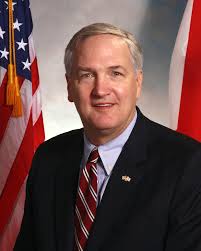Massachusetts Attorney General Maura Healey took time out from impeding Steve Wynn‘s Everett casino to run a cart and horses through the Legislature’s carefully crafted three-casinos-and- one-slot-parlor formula. She approved a ballot question that seemed tailor-made to give Suffolk Downs racino status, although Downs COO Chip Tuttle protested, “It’s not us.” East Boston casino opponents, however, weren’t buying it and proceeded to rend their garments in dismay. “There is something so maddening about the idea that we have to do this again,” said one, while another groused, “I would feel that this is a complete circumvention of the community process.”
one-slot-parlor formula. She approved a ballot question that seemed tailor-made to give Suffolk Downs racino status, although Downs COO Chip Tuttle protested, “It’s not us.” East Boston casino opponents, however, weren’t buying it and proceeded to rend their garments in dismay. “There is something so maddening about the idea that we have to do this again,” said one, while another groused, “I would feel that this is a complete circumvention of the community process.”
Although the ballot language, without naming a specific track, is explicit enough in the size of the racino (four acres) and its proximity (1,500 feet) to a racing oval. Healey deemed the terms sufficiently liberal for multiple Massachusetts sites to qualify. For instance, Brockton could use the terminology to get around the Massachusetts Gaming Commission‘s dilatory treatment of its casino application — let alone an outright refusal to issue a Region C license. The billion-dollar question is whether, should the referendum qualify and pass, Suffolk Downs and its host communities would call off the legal beagles they’ve sicced on Wynn and instead try to beat him at his own game.
* Skill-based slots have been approved by the Nevada Gaming Control Board, clearing one important hurdle. Not content to pin all its hopes on slots, though, Las Vegas Sands is importing a concept that’s proven successful in Macao and test-flying it at Sands Bethlehem. It’s scrapping a juice bar in favor of a 150-seat  stadium in which punters will play blackjack, baccarat, roulette and sic bo on electronic terminals, but against a live dealer. Sands officials hope this hybrid, with its low table limits ($5 a hand), stimulates play amongst millennials. As Gamblit executive David Chang told the Washington Post earlier this year, “You have as much chance getting a millennial into slot machines as you do getting your grandmother into playing ‘Halo.’” Sands already leads Pennsylvania in table-game play and if this concept succeeds in Bethlehem there’s no reason we shouldn’t see it in Las Vegas.
stadium in which punters will play blackjack, baccarat, roulette and sic bo on electronic terminals, but against a live dealer. Sands officials hope this hybrid, with its low table limits ($5 a hand), stimulates play amongst millennials. As Gamblit executive David Chang told the Washington Post earlier this year, “You have as much chance getting a millennial into slot machines as you do getting your grandmother into playing ‘Halo.’” Sands already leads Pennsylvania in table-game play and if this concept succeeds in Bethlehem there’s no reason we shouldn’t see it in Las Vegas.
* Alabama has conceded defeat in its attempts to shut down the gaming operations of the Poarch Band of Creek Indians. A ruling by the 11th Circuit Court of Appeals held that tribal  regulation is the sole province of the federal government. Attorney General Luther Strange took the outcome with grace, saying, “The Appeals Court’s decision makes it clear that the only way for the State of Alabama to regulate the gambling conducted on the PCI’s lands is to enter into a compact with the PCI. That is a decision for the Governor and Legislature, not me.” Considering the revenue that could be captured through a compact, it would behoove Alabama to take that route, which it has inexplicably failed to do so far. The tribe is ready to talk. Is the state?
regulation is the sole province of the federal government. Attorney General Luther Strange took the outcome with grace, saying, “The Appeals Court’s decision makes it clear that the only way for the State of Alabama to regulate the gambling conducted on the PCI’s lands is to enter into a compact with the PCI. That is a decision for the Governor and Legislature, not me.” Considering the revenue that could be captured through a compact, it would behoove Alabama to take that route, which it has inexplicably failed to do so far. The tribe is ready to talk. Is the state?
* Finding a $1.7 billion purchase price too rich for its blood, 888 conceded Bwin.party to GVC Holdings, which was practically throwing money around in its ardor for GVC. It’s a defeat for 888  booster Jason Ader, who switched sides in order to declare some sort of victory, claiming the outcome represented “the best value for all shareholders.” If he feels that way now, why didn’t he support GVC earlier? In other Internet news, Delaware will be offering slot games online, using Scientific Games content, run off Caesars Interactive servers in Atlantic City. The games debuted quietly on Monday and, after being monitored for glitches, were only publicly announced late this week. Maybe this will finally kick-start Delaware’s online gambling industry.
booster Jason Ader, who switched sides in order to declare some sort of victory, claiming the outcome represented “the best value for all shareholders.” If he feels that way now, why didn’t he support GVC earlier? In other Internet news, Delaware will be offering slot games online, using Scientific Games content, run off Caesars Interactive servers in Atlantic City. The games debuted quietly on Monday and, after being monitored for glitches, were only publicly announced late this week. Maybe this will finally kick-start Delaware’s online gambling industry.

